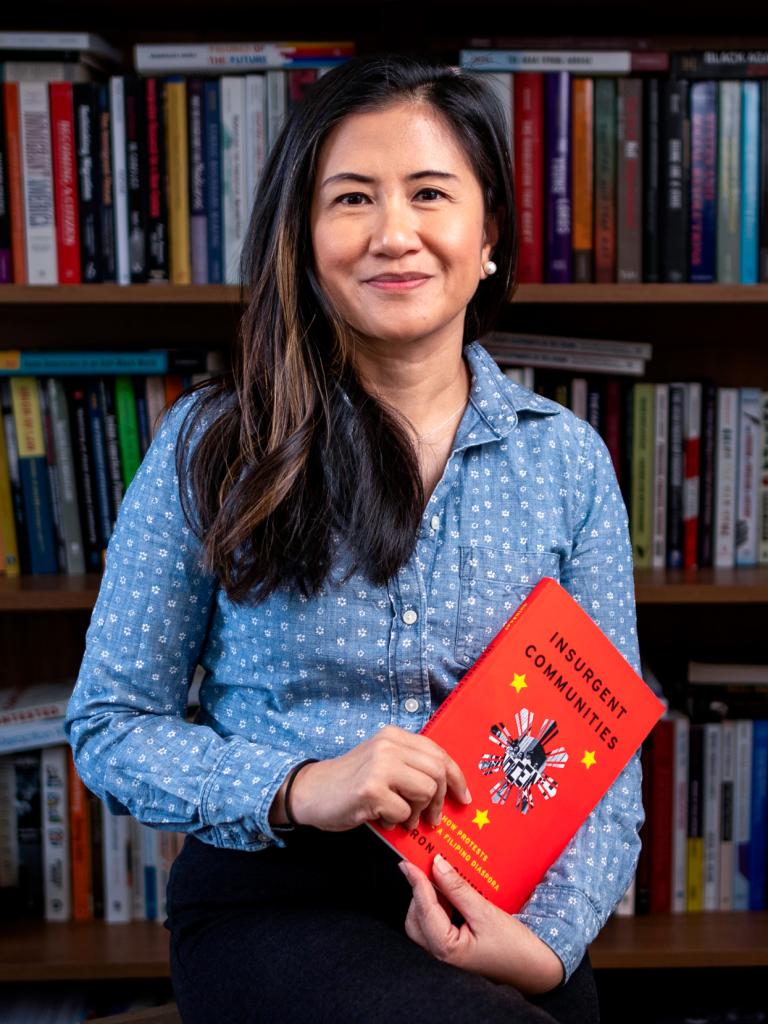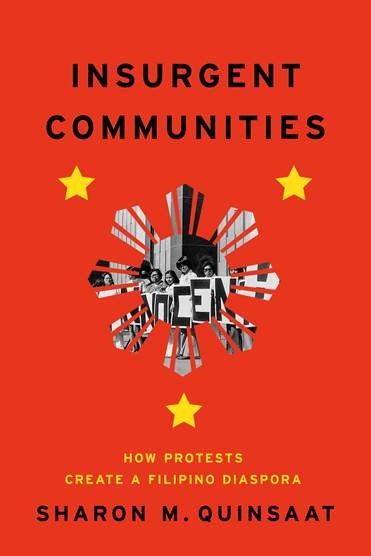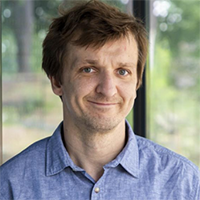Sociologist Sharon M. Quinsaat sheds new light on the formation of diasporic connections through transnational protests. When people migrate and settle in other countries, do they automatically form a diaspora? In Insurgent Communities, Quinsaat explains the dynamic process through which a diaspora is strategically constructed. She looks to Filipinos in the United States and the Netherlands — examining their resistance against the dictatorship of Ferdinand Marcos, their mobilization for migrants’ rights, and the construction of a collective memory of the Marcos regime — to argue that diasporas emerge through political activism. Social movements provide an essential space for addressing migrants’ diverse experiences and relationships with their homeland and its history. A significant contribution to the interdisciplinary field of migration and social movements studies, Insurgent Communities illuminates how people develop collective identities in times of social upheaval.
About the lecturer
Sharon Madriaga Quinsaat is a scholar of social movements and migration and currently Associate Professor of Sociology at Grinnell College. She has conducted research using both qualitative and quantitative methods and published on a wide range of topics, including migrant conservatism, diaspora formation, transnational repression, news frames and discourses on immigration, women’s international nongovernment organizations, coalition-building in the World Trade Organization, and movement against free trade. Her work has been funded by the National Science Foundation, the National Endowment for the Humanities, the American Association of University Women, the American Philosophical Society, the Russell Sage Foundation, the Midwest Sociological Society, and the Association for Asian Studies and has been recognized by the American Sociological Association, the Association of Asian American Studies, and the International Studies Association through research paper awards. She has published her research in in edited volumes and peer-reviewed journals such as Journal of Ethnic and Migration Studies, Mobilization, Ethnic and Racial Studies, Mass Communication and Society, Sociology Compass, and Asian Survey.
X: @smquinsaat


Moderator
Prof. (Dr. of Social Sciences) Miķelis Grīviņš is a tenured professor at RSU. For the past ten years, he has been researching various aspects of food systems, focusing on the interaction between food circulation and dietary habits, as well as food policy and alternative food sources.

Location
Related links
Tā kā Rīgas Stradiņa universitāte ir publiska iestāde, pasākuma laikā jūs varat tikt fotografēts un/ vai filmēts. Fotogrāfijas un video var tikt publicēts universitātes mājaslapā, sociālajos medijos u. tml. Vairāk par savām tiesībām un iespēju iebilst pret šādu datu apstrādi varat uzzināt RSU Privātuma politikā. Ja iebilstat pret personas datu apstrādi, lūdzam par to informēt, rakstot uz rsu rsu[pnkts]lv (rsu[at]rsu[dot]lv).
rsu[pnkts]lv (rsu[at]rsu[dot]lv).
As Rīga Stradiņš University (RSU) is a public institution you could be photographed and/or filmed during the event. Your personal data might be used to further the interests of RSU, e.g. for marketing or communication activities (incl. social media coverage). Read more about your rights see the RSU Privacy Policy. Should you have any objections to your personal data being processed please inform us via e-mail at rsu rsu[pnkts]lv (rsu[at]rsu[dot]lv).
rsu[pnkts]lv (rsu[at]rsu[dot]lv).


